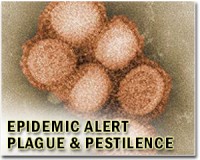| . |  |
. |
Saranac Lake NY (SPX) Apr 27, 2010 According to the World Health Organization, two billion people around the globe suffer from chronic parasitic worm infections, which, in addition to causing illness and developmental delay, are also suspected to interfere with the effectiveness of ordinary vaccines, making their victims more vulnerable to life-threatening diseases. A recent discovery by researchers at the Trudeau Institute promises to bypass these obstacles and help deliver more effective vaccines to these people, boosting their protection against common childhood diseases. Dr. Markus Mohrs and his team of investigators focus much of their studies on cytokines, messengers used by cells of the immune system to communicate with one another. Cytokines help determine both the size and the quality of our immune system's response to an infection. How well they perform their job can decide whether it's the person or the pathogen that wins the battle for survival. Despite their obvious importance, however, surprisingly little is known about how far or for how long cytokines can operate during an infection. New findings, reported in the current issue of the journal Nature Immunology, reveal when and where cytokine signals are received in the body. Dr. Mohrs reports that cytokines not only signal locally to neighboring cells, as previously thought, but they also spread throughout the affected lymph node influencing even those cells not actively involved in fighting the current infection. The indiscriminate action of the cytokines means that these bystander cells may respond inappropriately when the immune system encounters a different infection and it becomes their turn to react. The findings provide a potential explanation for the ability of chronic infections to alter immune responses to subsequent infections or vaccination procedures. This is particularly important for the design of vaccines in the developing world, where chronic parasitic infections can derail vaccination programs that are effective in healthy individuals. Because only bystander cells in the same lymph node as those responding to the parasite infection are affected by active cytokines, this study suggests that people infected with gastrointestinal worms may respond better to vaccines injected under the skin than those given by mouth. This is critical information for the development of globally-effective vaccination strategies. Although the current study will not necessarily lead to improved treatments for worm infections themselves, by understanding how worm infection affects other immune responses, scientists may be able to improve the efficacy of ordinary vaccines like those used to prevent polio, measles, malaria and TB in those regions of the world where most children are already infected with parasitic worms prior to receiving their childhood immunizations.
Share This Article With Planet Earth
Related Links Trudeau Institute Epidemics on Earth - Bird Flu, HIV/AIDS, Ebola
 Mexico helped avoid one million swine flu deaths: minister
Mexico helped avoid one million swine flu deaths: ministerMexico City (AFP) April 23, 2010 The Mexican health minister on Friday defended the H1N1 alert he issued one year ago and said that Mexico's strict measures to contain the virus had helped avoid one million deaths. "Mexico's response was transparent and immediate," Jose Angel Cordova said in comments to local media exactly one year after the release of the H1N1 alert spread panic across Mexico and the world. "The prospe ... read more |
|
| The content herein, unless otherwise known to be public domain, are Copyright 1995-2010 - SpaceDaily. AFP and UPI Wire Stories are copyright Agence France-Presse and United Press International. ESA Portal Reports are copyright European Space Agency. All NASA sourced material is public domain. Additional copyrights may apply in whole or part to other bona fide parties. Advertising does not imply endorsement,agreement or approval of any opinions, statements or information provided by SpaceDaily on any Web page published or hosted by SpaceDaily. Privacy Statement |